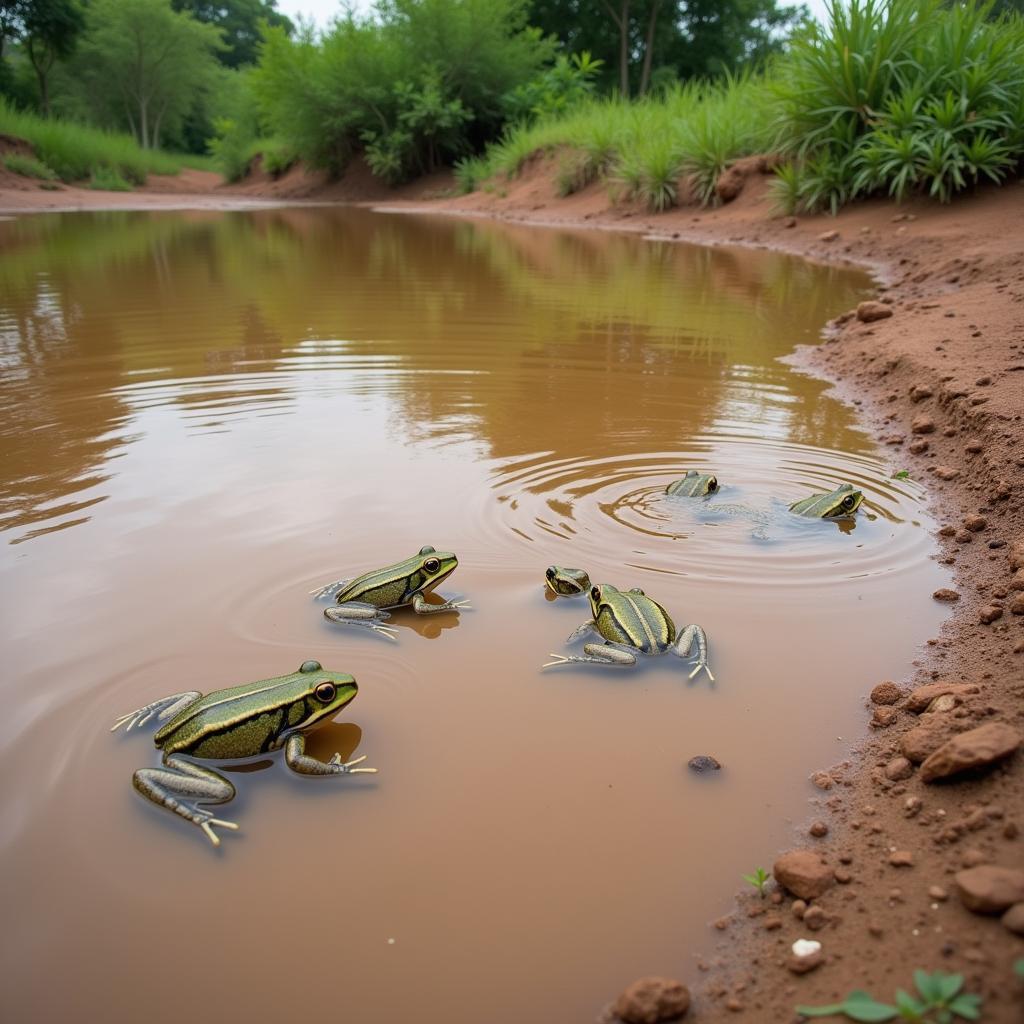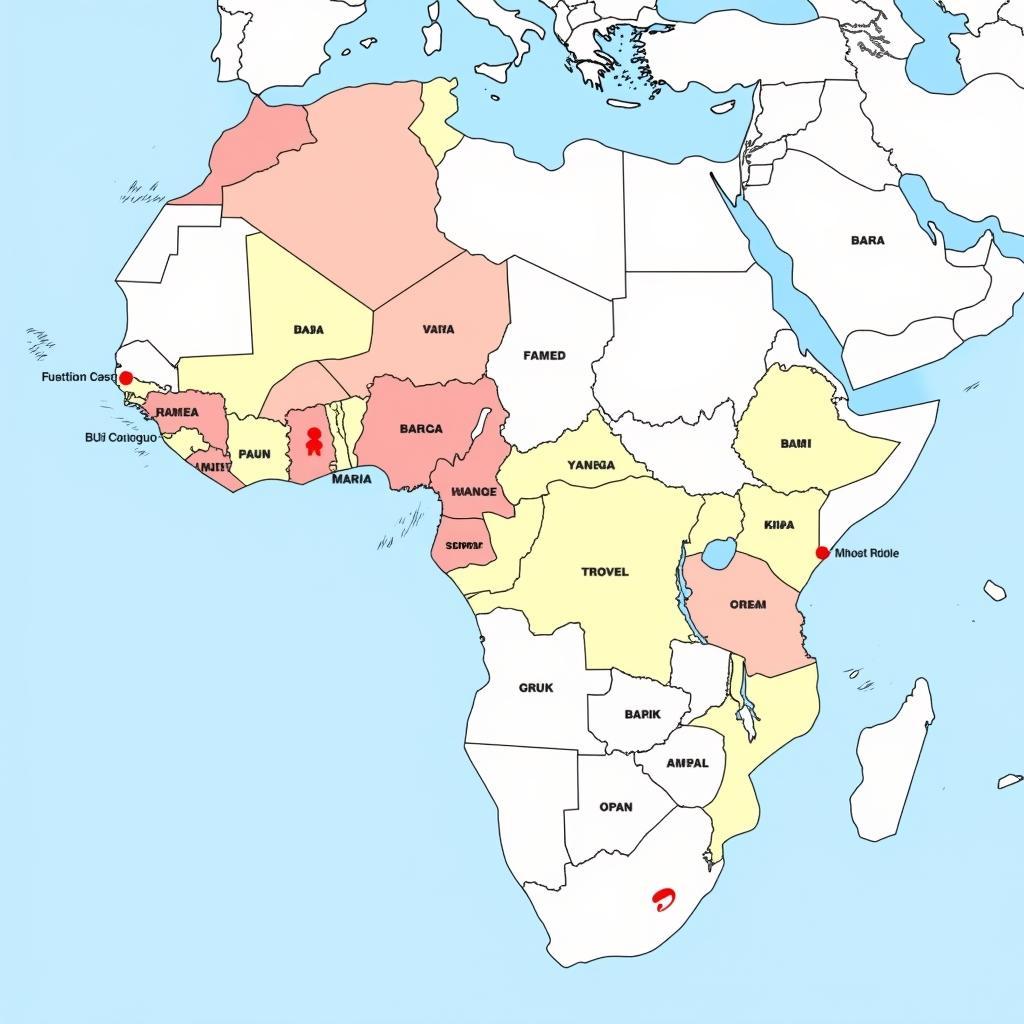Discovering the African Clawed Frog: A Comprehensive Guide
The African clawed frog, a fascinating aquatic creature native to sub-Saharan Africa, has captured the attention of scientists and aquarium enthusiasts alike. These unique amphibians, scientifically known as Xenopus laevis, offer a glimpse into the diverse world of aquatic life within Africa. This article will delve into their unique characteristics, care requirements, and important role in both scientific research and the pet trade.
Understanding the African Clawed Frog’s Natural Habitat
African clawed frogs thrive in warm, still or slow-moving freshwater habitats such as ponds, swamps, and ditches. Their native range stretches across much of sub-Saharan Africa, from Nigeria to South Africa. They are remarkably adaptable and can tolerate a wide range of water conditions, a testament to their resilience in the face of diverse environmental challenges. This adaptability has also unfortunately led to their introduction as an invasive species in several regions outside of Africa.
After discussing their natural habitats, it’s interesting to compare them to other African aquatic species like the african dwarf frog. While both are frogs, their preferred environments and care requirements differ.
 African Clawed Frog Habitat
African Clawed Frog Habitat
Caring for African Clawed Frogs in Captivity
Keeping African clawed frogs as pets requires a proper understanding of their needs. A spacious aquarium with a secure lid is essential, as they are adept at escaping. The tank should be filled with dechlorinated water and furnished with smooth gravel or sand substrate. Avoid sharp decorations that could injure their delicate skin. Live plants can enhance the environment but ensure they are non-toxic. A balanced diet consisting of commercial frog food, supplemented with bloodworms, brine shrimp, and earthworms, is crucial for their health.
Maintaining proper water quality is vital. Regular water changes and a good filtration system are necessary to remove waste products and maintain optimal water parameters. Remember, these frogs are entirely aquatic and don’t require a land area. Do you know what else is fully aquatic? The african dwarf frog and algae eater. Both thrive in fully aquatic environments.
The African Clawed Frog in Scientific Research
Beyond their popularity in the pet trade, African clawed frogs play a significant role in scientific research. They have been extensively used in biological and medical studies for decades, contributing to advancements in various fields. Their robust physiology, ease of breeding, and large, easily manipulated eggs make them ideal model organisms for studying developmental biology, genetics, and toxicology.
Why are African Clawed Frogs Important in Research?
Their use in early pregnancy testing, although now largely superseded by modern methods, was a landmark achievement in medical diagnostics. Today, research involving African clawed frogs continues to provide valuable insights into fundamental biological processes. They are even being used to study the effects of environmental pollutants on aquatic ecosystems. For enthusiasts interested in different species, consider the compatibility of the african dwarf frog and cory catfish for a unique tank setup.
African Clawed Frog: Conservation and Ethical Considerations
While adaptable, African clawed frog populations in their native range face threats from habitat loss and pollution. Understanding their ecological importance and supporting conservation efforts are crucial for their long-term survival. It’s essential to source captive frogs responsibly from reputable breeders or rescue organizations to avoid contributing to illegal wildlife trade and further endangering wild populations. Perhaps surprisingly, connections exist between seemingly disparate aspects of African culture, like the african cave art and modern conservation efforts, both reflecting a deep respect for the natural world.
Conclusion
The African clawed frog offers a unique window into the rich biodiversity of Africa. Whether you’re a seasoned aquarist or simply curious about this remarkable amphibian, understanding their needs and respecting their role in both scientific advancement and the delicate balance of their natural ecosystems is paramount. With responsible care and conservation efforts, we can ensure the future of the African clawed frog for generations to come. Perhaps the vibrant African goldfish can also inspire such dedication towards conservation efforts.
FAQ
- What is the lifespan of an African clawed frog? They can live up to 15 years in captivity with proper care.
- Are African clawed frogs social? Yes, they are social animals and thrive in groups.
- What temperature should the water be for African clawed frogs? The ideal temperature range is between 68-78°F (20-26°C).
- Can African clawed frogs see in color? Yes, they possess color vision.
- How often should I feed my African clawed frog? Adult frogs should be fed every other day, while juveniles require more frequent feeding.
- Do African Clawed Frogs carry diseases? They can carry certain bacteria and parasites, so proper hygiene is important when handling them.
- Can African Clawed Frogs live with other fish? While possible, it depends on the fish species and tank size; some fish may nip at their sensitive skin.
Common Scenarios and Questions
- My frog is not eating. This could be due to various factors, including stress, incorrect water temperature, or illness.
- My frog is floating at the surface. This can be a sign of a swim bladder issue or other health problems.
- The water is cloudy. This suggests poor water quality and necessitates a water change and filter cleaning.
Further Exploration
For more information on related topics, consider researching African aquatic ecosystems, amphibian care, and the role of model organisms in scientific research.
Need Help? Contact Us!
For further assistance with African Clawed Frogs or any other inquiries, don’t hesitate to contact us.
Phone: +255768904061
Email: kaka.mag@gmail.com
Address: Mbarali DC Mawindi, Kangaga, Tanzania.
Our customer service team is available 24/7 to address your concerns and provide support.

